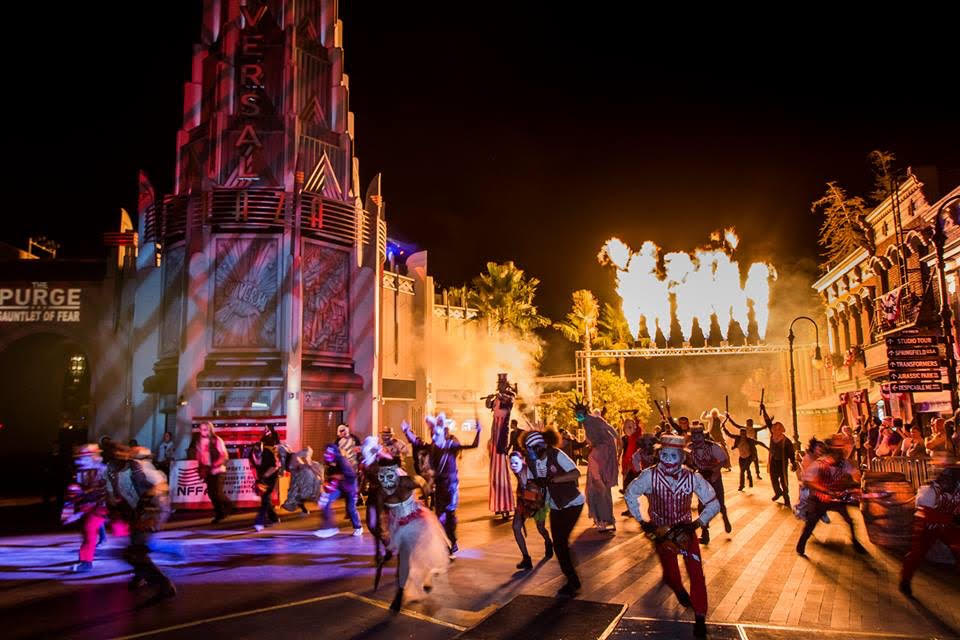ADRENALINE: The psychology behind our love for haunted houses and horror movies leaves us feeling better than ever.
By Crystal Hsueh, Staff Writer
As the leaves begin to change and the weather begins to cool, popular theme parks such as Universal Studios and Knott’s Scary Farm prepare to open their doors for hundreds and thousands of people that are paying to be scared. While dark mazes and jump-scares are frightening enough to leave almost anyone screaming, the parks only scrape the surface of the types of horrors that we as humans love to put ourselves through. There are mazes across the world where waivers are signed that allow you to be dragged, drowned, and even experience being buried alive. Humans practically beg for the feeling of danger, constantly putting themselves in terrifying situations. But if our bodies equip us with a fight or flight response that urges us to escape from any form of threat, why do we still love being scared?
When walking through a horror maze, there are two types of people: those whose hearts are racing and having the time of their life, and the others whose hearts are racing and feel as if they are going to die. Both people feel the same hormones coursing through their veins. Adrenaline. Cortisol. Norepinephrine. What makes one experience so different from the other? “Our subjective interpretation of scariness. You can’t say it’s the same for everybody… some people have never gone to Knott’s Scary Farm and they never will. Other people are like ‘I can’t wait’… usually those are the people who’ve done it before. They’re scared but not as scared as the first time they did it,” Poly’s psychology teacher, Mr. Peter Cherniss, explained. This means that going to Halloween Horror Nights for the fifth time is not going to feel the same as going for the first. Once our brain and bodies know what to expect, they become habituated and we begin to seek more intense and possibly more dangerous forms of stimuli. This behavior raises another question: do we experience the same fear when walking through a maze as we do when we are in genuine danger?
The difference between being scared while being chased by a worker at an amusement park as opposed to someone who is actually threatening is that our brains are able to understand that we are not actually in danger. This allows the body to feel the “rush” of being scared, similar to a runner’s high. Our heartbeat, blood pressure, and breathing skyrocket and our body becomes more alert, overwhelmed by a euphoric feeling. “Our lives now are basically safe. For some people that’s not enough for them so they look for ways to scare themselves… because that’s the only time they really feel alive,” Cherniss said. Fear is also a form of escapism, the tendency to seek distraction from unpleasant realities. When we are scared, all rational thought flies out the window and we are unable to focus on anything else except for what is in front of us, fully in touch with our brains and how our bodies are reacting to them. There is no escaping terror. Perhaps by recognizing the psychology behind the different ways the brain interprets danger, we will then be able to fully understand our fondness for fear.

